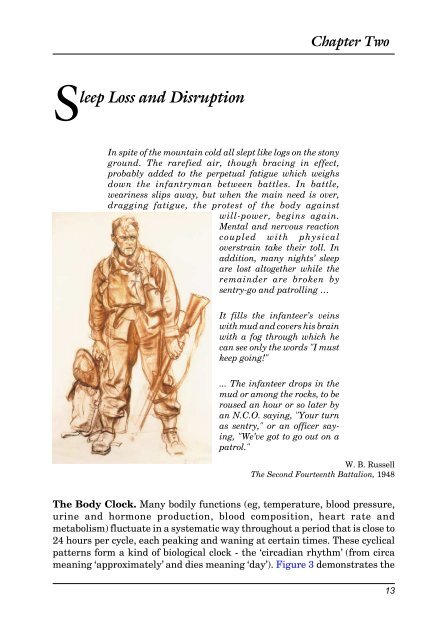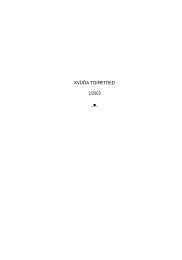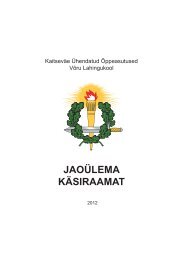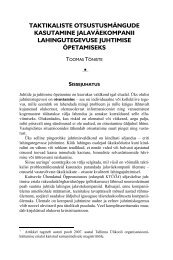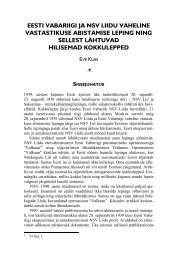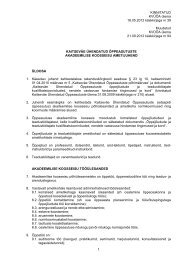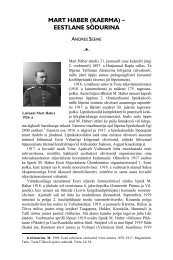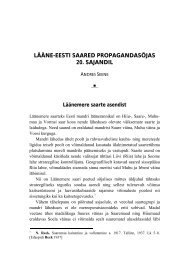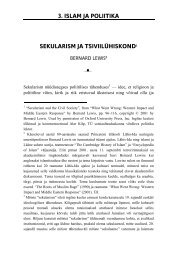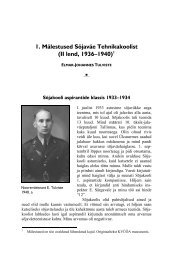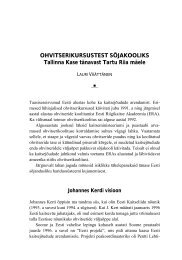Fatigue Management
Fatigue Management
Fatigue Management
Create successful ePaper yourself
Turn your PDF publications into a flip-book with our unique Google optimized e-Paper software.
Chapter Two<br />
Sleep Loss and Disruption<br />
In spite of the mountain cold all slept like logs on the stony<br />
ground. The rarefied air, though bracing in effect,<br />
probably added to the perpetual fatigue which weighs<br />
down the infantryman between battles. In battle,<br />
weariness slips away, but when the main need is over,<br />
dragging fatigue, the protest of the body against<br />
will-power, begins again.<br />
Mental and nervous reaction<br />
coupled with physical<br />
overstrain take their toll. In<br />
addition, many nights' sleep<br />
are lost altogether while the<br />
remainder are broken by<br />
sentry-go and patrolling …<br />
It fills the infanteer's veins<br />
with mud and covers his brain<br />
with a fog through which he<br />
can see only the words "I must<br />
keep going!"<br />
... The infanteer drops in the<br />
mud or among the rocks, to be<br />
roused an hour or so later by<br />
an N.C.O. saying, "Your turn<br />
as sentry," or an officer saying,<br />
"We've got to go out on a<br />
patrol."<br />
W. B. Russell<br />
The Second Fourteenth Battalion, 1948<br />
The Body Clock. Many bodily functions (eg, temperature, blood pressure,<br />
urine and hormone production, blood composition, heart rate and<br />
metabolism) fluctuate in a systematic way throughout a period that is close to<br />
24 hours per cycle, each peaking and waning at certain times. These cyclical<br />
patterns form a kind of biological clock - the ‘circadian rhythm' (from circa<br />
meaning ‘approximately' and dies meaning ‘day'). Figure 3 demonstrates the<br />
13


